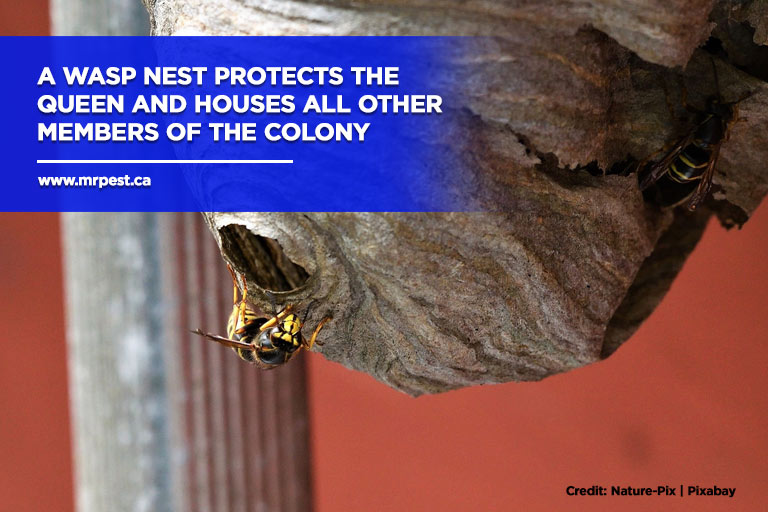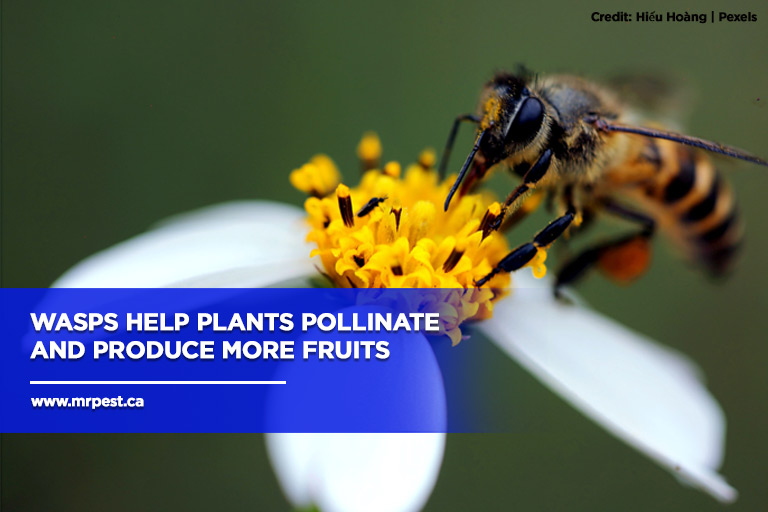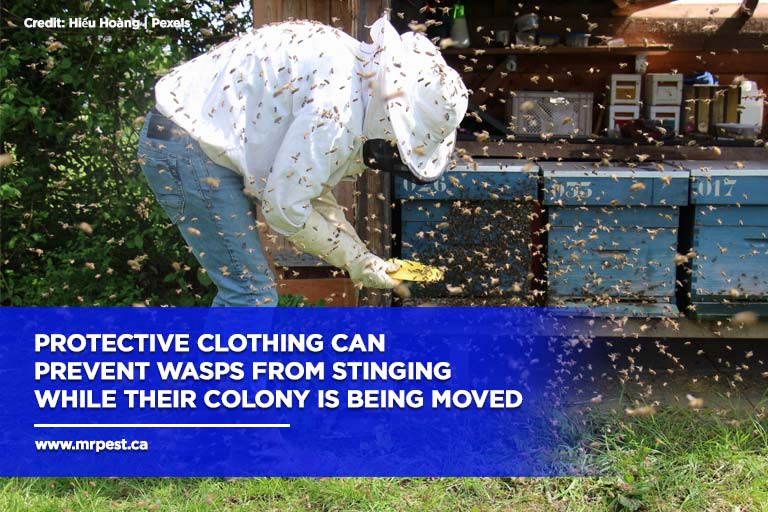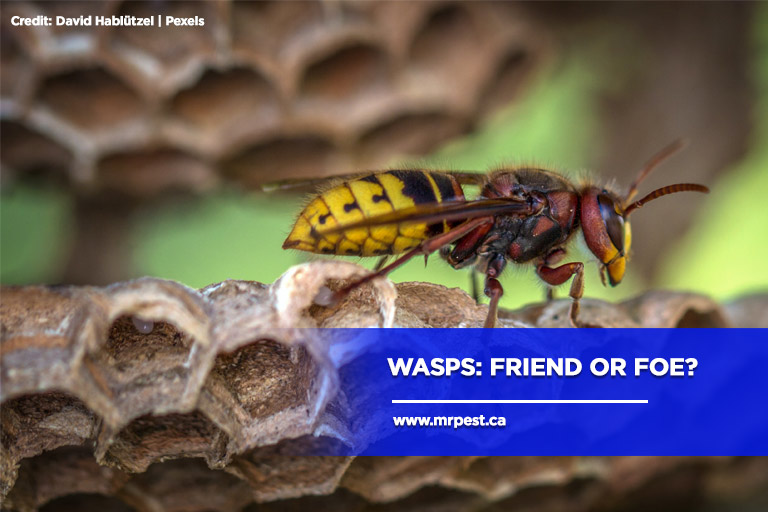Imagine that while you are busy cleaning your house you suddenly find a big wasp nest. There is no way you welcome seeing them building a colony in your home. Immediately you will try to think of how to be rid of wasps so you can prevent them from causing any harm.
Wasps, a close cousin of the bees, often get a bad reputation. They are almost always linked to aggression; and the mere sighting of them on a property would send anyone running to the nearest Ontario pest control. But, are wasps truly a foe or is there a way they can be a friend, too?
Wasps Characteristics

A wasp is hairless, unlike the common bee species found in Canada. They have 3 distinct body parts: the head, thorax, and abdomen. A constricted petiole that gives the wasp the appearance of a slender waist joins the thorax to the abdomen. The head bears the mouth, compound eyes, sensory organs, and segmented antennae. Female wasps have their egg-laying ovipositors in the last segment of their abdomen.
The body size and colour of wasps depend on their species. Yellow jackets and hornets are stout and have colourful white, black, and bold yellow markings. Paper wasps are relatively long and thin-bodied with yellow-reddish and black markings. Mud daubers have a distinct long body and a stalked or long abdomen.
Contrary to popular belief, they are not aggressive. They usually go out foraging around flowers and trash bins. Their hostile actions are usually due to being startled or feeling threatened. The key to avoiding being pestered by these creatures is to find who to call for wasp control when you need it.
Wasps as Friends

A New York Times article published a few days after the death of Queen Elizabeth II caught the attention of people around the world. It simply says that the royal beekeeper had to inform the bees that the royal has died. Some people scorned the idea, thinking that this was only one of the many frivolous things practiced by the monarchy. However, “telling the bees” is a standard practice backed by historians and folklore and is practiced in other parts of Europe as well as in North America. Of course, this practice is not just limited to bees, wasps and other insects from the Hymenoptera order are also included.
Wasps, like other insects, have a role to play in keeping a balanced and healthy ecosystem. Here are some ways they can be your friend:
- Predators of Small Insects
The global need for a sustainable method to control agricultural pests to reduce the reliance on the use of pesticides and imported pest controllers led researchers to find the value of using social wasps on farms. In the study conducted and published in Proceedings of the Royal Society B, social wasps have been found as effective predators that help manage other insects on maize and sugarcane. These insects should be proof of why a pest is important to the environment.
- Pollination
Do wasps produce honey? The answer is no. But, even if they don’t produce honey, like their popular bee cousins, they have been studied for years by experts in terms of their role as pollinators.
The hairy bodies of the insect can get fine dust stuck in them. They are also known for visiting flowers for nectar so they help in the pollination process. Having them around can help plants bloom and yield more fruits.
- Scavenging to Prevent Piling of Dead Bodies
Social wasps are hunters and scavengers. They can prey on a variety of insects which serve as their source of animal protein. Their large and powerful cutting mandibles are used for capturing, subduing, and processing their prey. With their ability to scavenge in dumpsters and other places, they can help prevent the dead bodies of other animals from piling up.
Wasps as Foes

As much as they are helpful, wasps can also pose threats to people nearby. If they multiply uncontrollably, they can destroy properties and hurt people. These are the reasons why you need the best wasp control:
- Wasps can cause allergies
Their hairy bodies can carry and collect dust particles. People who have allergic reactions to dust and pollen should stay away from them.
Another way they can cause allergies is when they sting. The symptoms of severe reactions to stings include:
- Severe swelling of the lips, face, and throat
- Breathing difficulties
- Hives or itching in the area of the sting
- Dizziness
- A sudden drop in blood pressure
- Lightheadedness
If anyone in your household has allergies, look out for the presence of this insect on your property. Always teach everyone in the household the first aid treatment for wasp stings. Search for “wasps control near me” online to control their population and avoid serious health problems.
- Wasps can attack people and animals
The truth is, if these pests are left alone, they will not hurt people and animals. However, they can be aggressive if they feel threatened or if their food source is no longer enough to feed everyone in the nest. As a result, they can chase anyone and anything they see. Worse, they can sting multiple times.
The moment you see a nest, make sure to call Ontario pest prevention for help. Do not attempt to go head to head with them and let professionals take care of the matter instead. They are trained on how to control wasps without impacting the ecosystem.
- Wasp larvae can kill their host plant
Different wasp larvae can impact their host plants. A common thing to see is the swelling of tissue like the leaf tissue, bud tissue, or bark tissue that results from an infection. If this is not treated, the plant can die. The gall wasp is the most common species known for infesting plant hosts.
Looking at wasps according to their role in the ecosystem makes it difficult for most people to get rid of them. While they may become aggressive when threatened, they also play a crucial role in keeping plants alive. It is because of this that biologists and other experts recommend looking for eco-friendly pest control in Ontario and not the total eradication of these animals. If their population is kept at a helpful number, the rest of the community can benefit from their presence.
For wasps and bees control in Orillia, contact Mr. Pest today at 705-326-3377.



